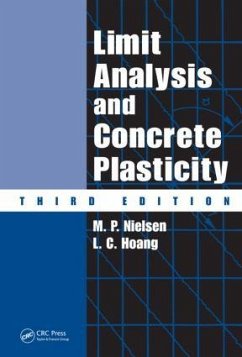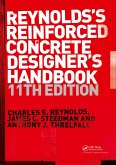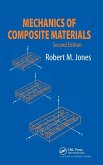First published in 1984, Limit Analysis and Concrete Plasticity explains for advanced design engineers the principles of plasticity theory and its application to the design of reinforced and prestressed concrete structures, providing a thorough understanding of the subject, rather than simply applying current design formulas.
Updated and revised throughout, Limit Analysis and Concrete Plasticity, Third Edition adds-
Reinforcement design formulas for three-dimensional stress fields that enable design of solid structures (also suitable for implementation in computer-based lower bound optimizations) Improved explanations of the crack sliding theory and new solutions for beams with arbitrary curved shear cracks, continuous beams, lightly shear reinforced beams and beams with large axial compressionMore accurate treatment of and solutions for beams with circular cross-section Applications of crack sliding theory to punching shear problemsNew solutions that illustrate the implication of initial cracking on load-carrying capacity of disks Yield condition for the limiting case of isotropically cracked disk
The authors also devote an entirely new chapter to a recently developed theory of rigid-plastic dynamics for seismic design of concrete structures. In comparison with time-history analyses, the new theory is simpler to use and leads to large material savings. With this chapter, plasticity design methods for both statical and dynamical loads are now covered by the book.
Updated and revised throughout, Limit Analysis and Concrete Plasticity, Third Edition adds-
Reinforcement design formulas for three-dimensional stress fields that enable design of solid structures (also suitable for implementation in computer-based lower bound optimizations) Improved explanations of the crack sliding theory and new solutions for beams with arbitrary curved shear cracks, continuous beams, lightly shear reinforced beams and beams with large axial compressionMore accurate treatment of and solutions for beams with circular cross-section Applications of crack sliding theory to punching shear problemsNew solutions that illustrate the implication of initial cracking on load-carrying capacity of disks Yield condition for the limiting case of isotropically cracked disk
The authors also devote an entirely new chapter to a recently developed theory of rigid-plastic dynamics for seismic design of concrete structures. In comparison with time-history analyses, the new theory is simpler to use and leads to large material savings. With this chapter, plasticity design methods for both statical and dynamical loads are now covered by the book.








